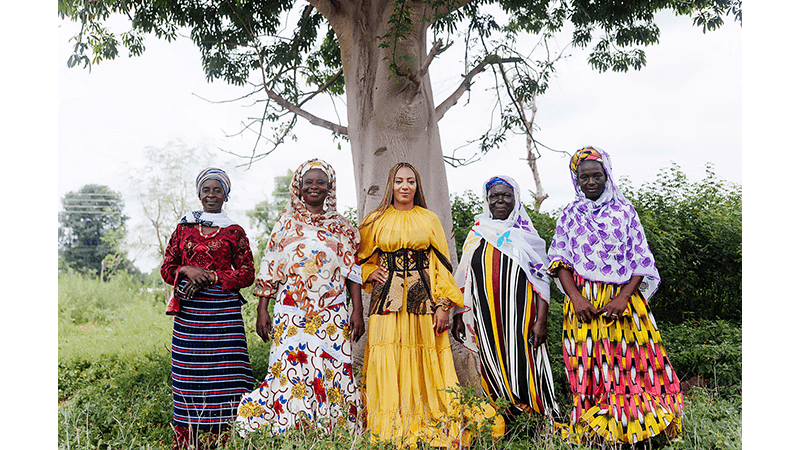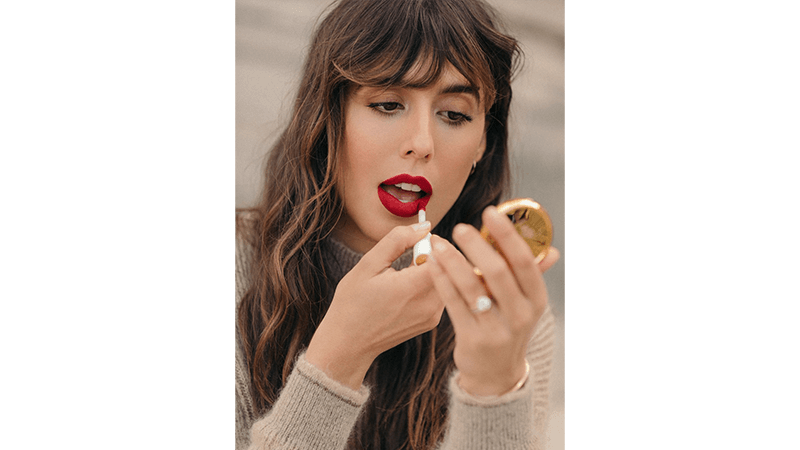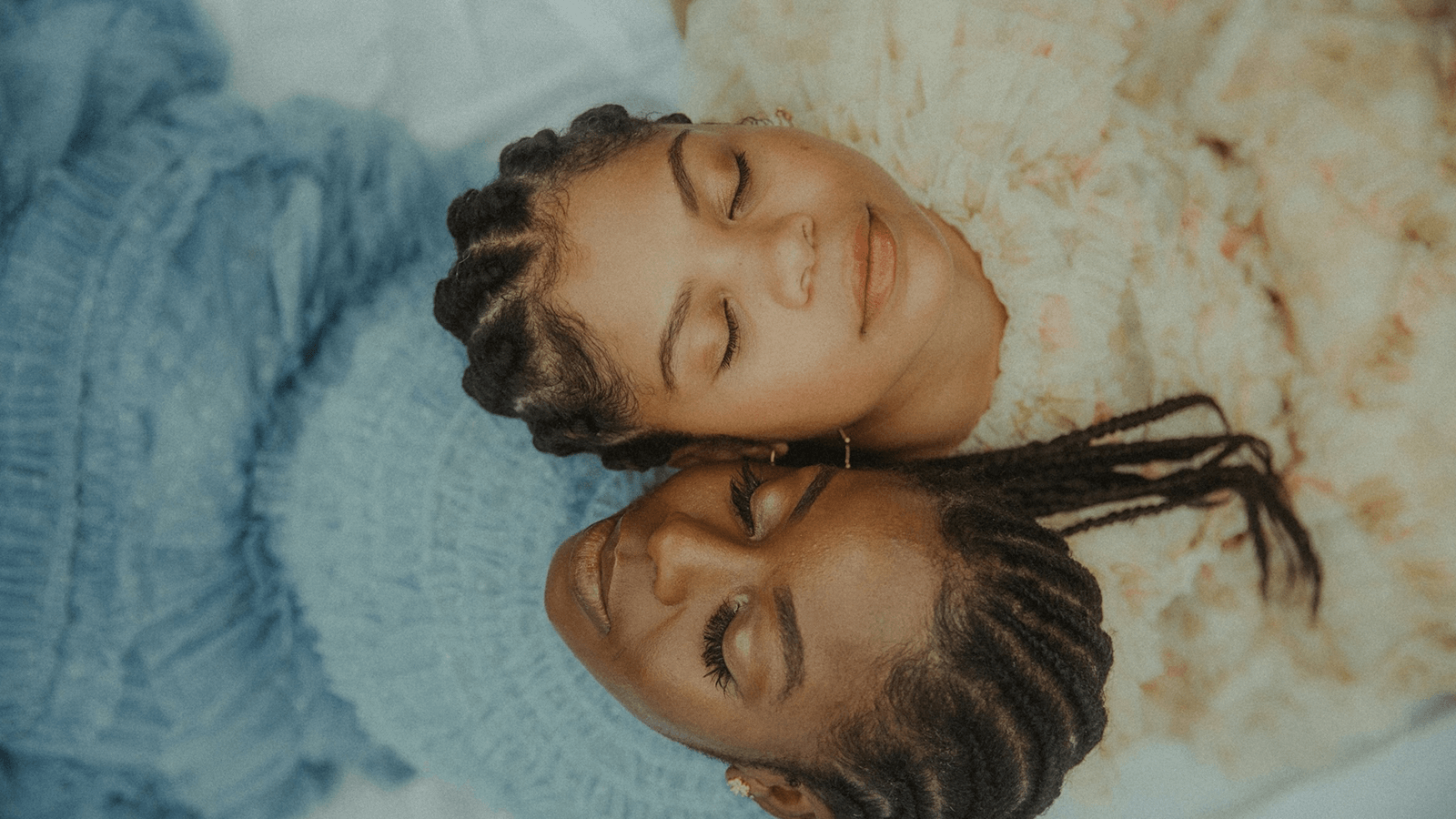The Rise Of A-Beauty: The Brands Harnessing The Power Of African Ingredients
K-Beauty and J-Beauty have had their moments in the spotlight. Now, it’s the turn of A-Beauty: a term used to describe skincare, hair care and makeup products originating in Africa. African Beauty is embedded in ancient wisdom and age-old customs of using natural ingredients to nourish and heal. Moroccan oil, karite shea butter, copra oil, baobab oil and marula oil (to name just a few) have been honoured in Black communities worldwide for centuries and used for everything from hair care to skin moisturisers.
A new wave of African brands is harnessing the power of these powerful natural ingredients to fulfil our beauty needs without relying on toxic chemicals – and the global beauty market is starting to take notice.
The African beauty industry is currently experiencing a boom – predicted to generate almost $66billion domestically in 2024. This is being driven by many factors, from social media trends (see the growth of #ABeauty on Instagram and the rise of popular African beauty influencers including Dimma Umeh, Enioluwa Adeoluwa, Cynthia Gwebu and Nyma Tang) to evolving beauty standards that are seeing conscious consumers shift towards the natural, heritage-rich products that A-beauty is becoming known for.
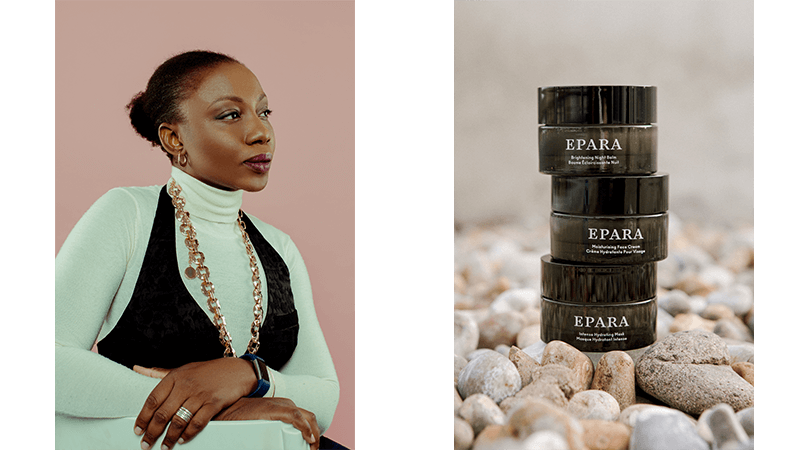
Enter this new wave of beauty brands by African founders. There’s Epara, Ozohu Adoh’s luxury skincare brand known for incorporating African botanical ingredients such as buchu plants, neroli and marula oil. Arami Essentials is a Nigerian skincare brand from Ore Lawani – the line features cleansers that contain clarifying African black soap. Salwa Petersen founded her eponymous hair care brand after being inspired by a centuries-old family tradition of using antioxidant, vitamin-rich seeds of the plant from the highlands of her native Chad to care for tightly textured hair.
Growing up in Nigeria in the early 2000s, I loved to experiment with beauty. But my perception of locally made beauty products was skewed with negativity. In fact, ‘made in Africa’ was a phrase used by some to describe African brands as somehow substandard. At the time, foreign brands were seen as more desirable and trusted to use.
As an adult, I began to realise that the foreign beauty products I came across didn’t cater to women of colour. There was inadequate protection against harsh sunlight and UV radiation and a lack of appropriate treatments for skin conditions such as hyperpigmentation, dryness and acne. So, in recent years, I’ve started seeking out trustworthy and effective African products from the many new A-Beauty brands that are popping up to fill that void.
My experience isn’t unusual. Beauty standards in Africa have shifted in the past decade and many consumers, like me, have a growing interest in returning to a natural approach. Awareness – and rejection – of harsh products such as skin-lightening creams (which not only contain harmful chemicals, such as bleaching agent hydroquinone, but also high levels of mercury), is growing. These products, which have long been easily accessible in pharmacies and beauty stores in Africa, are now being regulated. Several countries, including Ghana, Kenya and Rwanda, have banned the sale of skin-bleaching products in recent years.
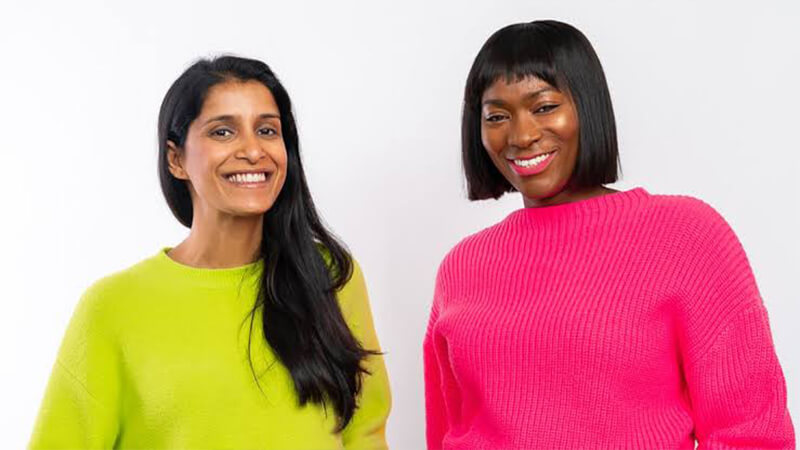
This new generation of A-Beauty products uses natural remedies to soothe stubborn skin problems. Sneha Mehta, co-founder of the Kenya-based skincare and wellness brand Uncover, celebrates the growing demand for products based in natural ingredients that tap into African beauty heritage. “Our beauty market is as diverse as the continent itself, with each region offering its unique preferences and traditions,” she says. “A part of what makes our products unique is that the African identity carries through to the product’s ingredients, with each one containing a plant grown on the continent. Our sunscreen includes cooling aloe vera, while the vitamin C serum uses baobab to help reduce redness.”
Valerie Obaze is the founder of R&R Luxury, a sustainable beauty brand founded in Nigeria in 2010. She celebrates the richness of natural African materials but says there are obstacles to fully realising A-Beauty’s potential on the global beauty stage.
“Africa has an abundance of natural materials but the existing technology available for product development is limited,” she explains. “And 14 years [since launching], this is something I’m still trying to achieve. Most of my products are infused with shea butter and produced by native Ghanaian aunties who have been in the business for a long time.” She continues, “Each R&R product is an invitation into a voyage of the most beautiful versions of ourselves through ingredients that are Africa’s gift to the world.”
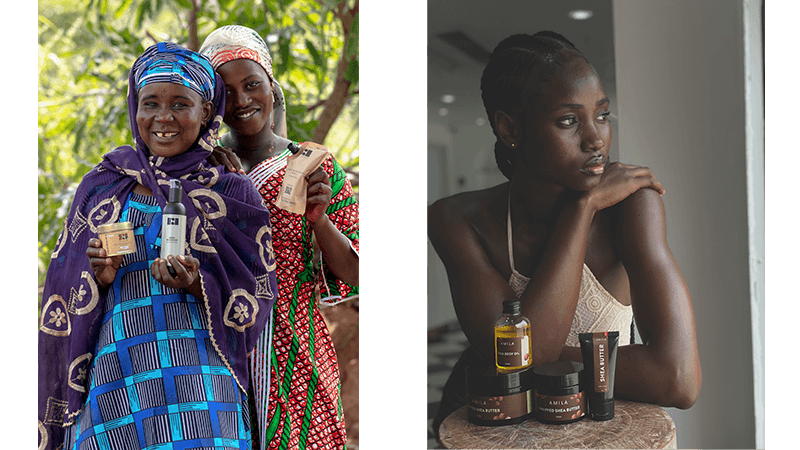
Challenges aside, the African beauty market also represents huge potential. Raeesa Bray, a beauty expert at consumer trend forecaster WGSN, believes that scalp care is the next big thing the industry should focus on. “There’s a big movement of girls wearing wigs and constantly having their hair braided, and not giving their hair or scalp a break,” she says. “We are seeing a focus on scalp care and hair health that we predict will continue to rise. Brands such as Amila in Nigeria, Suki Suki Naturals in South Africa and Nokware in Ghana are already spearheading this.”
Although the journey has been arduous, the African beauty industry’s ability to adapt and thrive despite the challenges of limited funding, technology and resources speaks volumes about the unwavering spirit of African entrepreneurs. It suggests a bright future for A-Beauty.
This is something that all three women agree with. “In the coming years, I anticipate and hope for a beauty landscape that not only reflects the vibrancy of the African continent but also becomes a global beacon of inclusivity, innovation, and empowerment,” says Bray.
5 A-Beauty Brands To Try Now
- Emolyne Cosmetics – Founded by Uganda-born Emolyne Ramlov, this makeup brand is best known for its paraben-free, vegan lip and nail products in the perfect shades of nude and red for all skin tones.
- Epara – Ozohu Adoh created Epara (which means ‘to cocoon oneself’ in the Nigerian dialect of Ebira) to deliver luxury skincare that caters to the unique issues women of colour experience, with products crafted from organic, natural African ingredients.
- Arami Essentials – Ore Lawani was aware that Africa wasn’t commonly known as a key destination for beauty products and wanted to change that. She founded Arami Essentials in 2016, with a focus on delivering simple, natural formulas free from sulfates, parabens, silicones and other harmful ingredients, that aren’t tested on animals.
- Hanahana Beauty – After realising that she was over-buying skincare without being aware of the ingredients, A Abena Boamah-Acheampong returned to the ingredient her mother would use on her as a child: shea butter. The result: a conscious skincare and wellness brand that takes shea butter as its base, made by the Katariga Women’s Shea Cooperative in Ghana.
- SkinBUTTR – Tatiana Elizabeth’s brand is designed to simplify your body care routine. Her line of whipped shea-based body ‘buttrs’ and scrubs is enough to leave your skin fresh, glowing and deeply moisturised.
Victoria Goldiee is a freelance journalist covering lifestyle, culture and beauty. Her work has featured in publications including The Cut, Glamour and Insider

